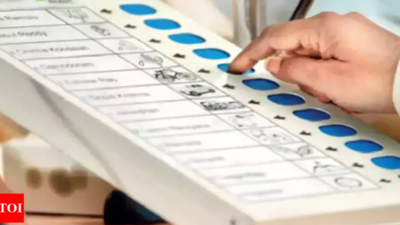- News
- Elections News
- Assembly Elections News
- Karnataka News
- Karnataka poll expenditure more than trebles to 511 crore in 10 years
This story is from May 12, 2023
Karnataka poll expenditure more than trebles to 511 crore in 10 years
While the state spent Rs 160 crore on the exercise in 2013, the expenditure touched Rs 511 crore in the just-concluded elections.

Image used for representational purpose only.
While the state spent Rs 160 crore on the exercise in 2013, the expenditure touched Rs 511 crore in the just-concluded elections.
Sources told TOI the government, based on the expenses incurred during the 2018 polls, had allocated Rs 300 crore in December 2022. However, when the stage was set for polls in February 2023, ECI estimated the expenditure to touch Rs 511 crore with average spending of Rs 2.3 crore per constituency. Subsequently, the government released an additional grant of Rs 211 crore for conducting polls.
"Holding elections is not a simple task but requires complete overhauling of the machinery, starting from training to final preparations. It is equally important to conduct polls without any violence or untoward incidents, which requires deployment of additional forces from outside. Besides, logistics and remuneration for election-duty personnel also need considerable funds," explained a senior official attached to ECI.
The cost of conducting polls in Karnataka has been steadily increasing over the years; it stood at Rs 394 crore in 2018. Acknowledging the rise, Manoj Kumar Meena, chief electoral officer of Karnataka, said: "We need to consider several factors while estimating the budget, which includes inflation. Besides, our scope of work also increases over the years," Meena explained.
Officials in the government revealed that major expenses incurred by the commission would pertain to printing of ballot papers and voter slips, printing of electoral photo identity cards (EPICs), and various SVEEP activities to create awareness among voters and political parties. "Nearly half the funds will be utilised to pay remuneration to poll-duty officials and observers deployed from outside the state. This apart, we also need to spend on logistics, including hired cars and buses to deploy staff and machinery. Of the entire allocation, nearly 30 to 35 per cent will be spent on polling day alone," the officials said.
End of Article
FOLLOW US ON SOCIAL MEDIA
